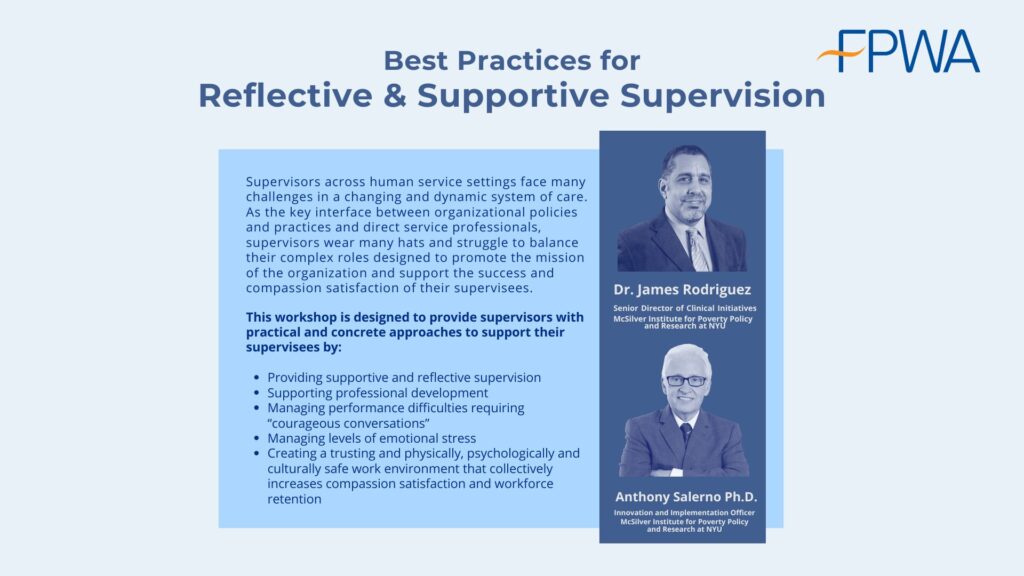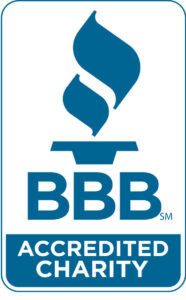Register Today for Best Practices for Reflective and Supportive Supervision
Tuesday, April 2nd from 10am – 3pm
In-Person Workshop
Supervisors across human service settings face many challenges in a changing and dynamic system of care. As the key interface between organizational policies and practices and direct service professionals, supervisors wear many hats and struggle to balance their complex roles designed to promote the mission of the organization and support the success and compassion satisfaction1 of their supervisees. Supervisory support focused on reflective and supportive supervision is a fundamental need for any organization focused on trauma-informed care that seeks to foster compassion resilience. Reflective and supportive supervision requires a trusting and collaborative relationship that addresses the needs of all staff, and includes opportunities to reflect on issues of equity, biases, and racial and cultural differences in the work and the workplace.
The benefits of such approaches include improved quality of care, a more engaged workforce, improved productivity, and reductions in costly turnover. This workshop is designed to provide supervisors with practical and concrete approaches to support their supervisees by: 1) providing supportive and reflective supervision, 2) supporting professional development, 3) managing performance difficulties requiring “courageous conversations”, 4) managing levels of emotional stress and 5) creating a trusting and physically, psychologically and culturally safe work environment that collectively increases compassion satisfaction and workforce retention.
Objectives:
- Participants will be able to describe the key components of reflective and supportive supervision.
- Participants will identify how to promote safety through effective communication skills, intentional use of reinforcement and modeling aligned with principles of culturally responsive supervision.
- Participants will explain the main concepts that reflect respectful and productive strategies to address performance problems.
- Participants will identify at least 3 practical approaches designed to support the professional development of their supervisees.
- Participants will describe four key strategies associated with promoting leadership support for change.
- Each participant will create a practical and timely action plan associated with one or more of the topics covered.
Featured Facilitators:








